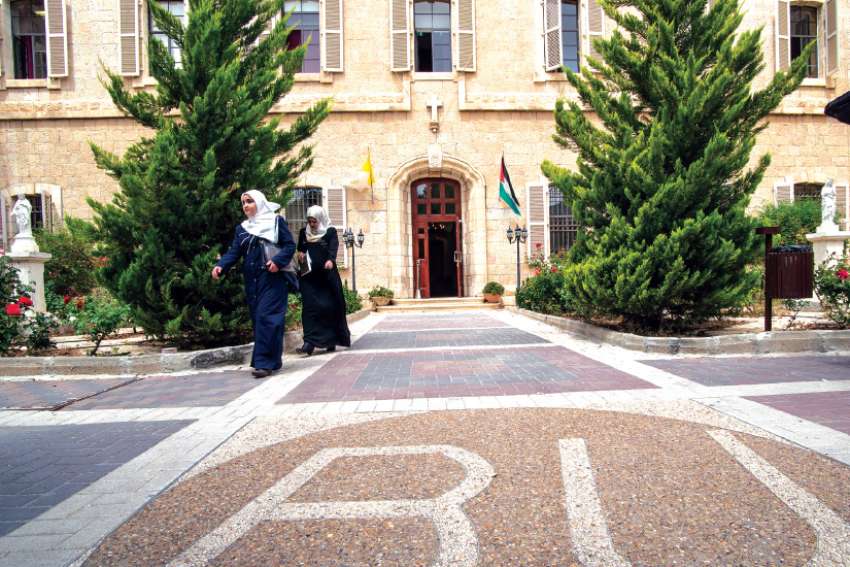In an economy dominated by foreign aid and government spending by the Palestinian Authority, tourism plays a huge role in Palestine’s tiny private sector.
The only Catholic university in the Holy Land is responding by establishing the Bethlehem University Tourism Institute. Thanks to a donation from the Saudi Fund for Development, construction can now begin on land the university bought for the purpose in 2013. Working through the United Nations Works and Relief Agency, the Saudi Fund for Development has committed $10 million (U.S.) to the project.
The tourism industry in Bethlehem has been slowly coming back since the 2014 war between Israel and Hamas-controlled Gaza scared off pilgrims. Between 2016 and the first half of 2018 the number of visitors to Palestine ballooned by 36 per cent. The growth has been led by a 69-per-cent spike in European Union visitors and a 64-per-cent rise in Asian visitors, according to the Palestinian Ministry of Tourism and Antiquities.
Bethlehem soaks up 68.7 per cent of the visitors to the occupied territories, and it is running out of hotel rooms.
“They were actually approaching families in homes to accommodate people (this year), because there were not enough rooms in hotels,” said Bethlehem University vice chancellor Brother Peter Bray.
There’s no reason why pilgrimages to Manger Square, the Church of the Nativity and other holy sites shouldn’t drive a huge, year-round tourism industry in Palestine, said Bray, a De Le Salle Christian Brother.
“If we can get a stable political situation, you know this is the cradle of Christianity,” he said. “What’s beginning to happen is that people from Korea, from Asia are beginning to come.”
Bray believes his university has an important contribution to make to a more modern and sophisticated tourism industry.
“There are two things we are trying to do with the Institute of Tourism and Hotel Management. The first is to raise the quality of our service that is being offered at present,” he said.
The existence of a better skilled workforce may also attract investment.
Tourism is particularly important for the Christian minority in Bethlehem. Down to just 12 per cent of the city, which was 80-per-cent Christian in 1948, Bethlehem Christians still own the majority of hotels, restaurants and tourist shops.
“Most of the hotels and restaurants are family-owned businesses,” Bray said. “As a result, they think, ‘Well, we know what to do.’ They don’t. We believe we have the capacity with this new arrangement to raise the level of service that’s available… It’s a way of supporting the Christians and keeping them there as well.”
Bethlehem University is not going to apologize for taking money from the Saudis, Bray told The Catholic Register while he was visiting Toronto Nov. 20.
“We take it from the United States,” he said. “Whatever sources, governmental source, there’s going to be compromises there.”
The Saudi Fund for Development operates at arm’s length from the Saudi government and has a history of involvement in development projects in Palestine and Africa, Bray said. Bethlehem University has more often found funding from the U.S. government’s fund called American Schools and Hospitals Abroad and from USAID — which over the years has helped finance every building on the Bethlehem University campus.


